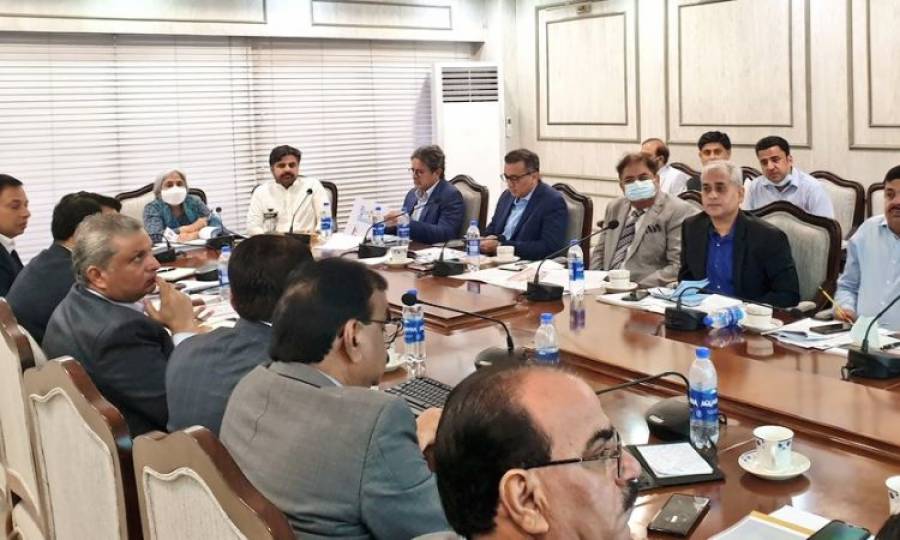Azra Pechuho chairs Vector Borne Diseases meeting

KARACHI: Azra Fazal Pechuho, Minister for Health and Population Welfare of Sindh, conducted a meeting on Vector Borne Diseases.
In addition to Najam Shah, Nasir Hussain Shah, Murtaza Wahab, Qasim Siraj Soomro, and Zulfiqar Shah, additional members from the Ministry of Information, Local Government, Karachi Administration, Vector Borne Diseases Department, etc. were present.
Local governments might develop a more precise map of vector hotspots with the assistance of DHOs, as reported during the conference. Though dengue is most prevalent in Karachi, malaria has been a problem across the province. Although there has been a drop in dengue infection rates, it is uncertain whether this trend will continue, given both October and November are dengue seasons in Karachi. Malaria may still be underreported as the data is collected from health facilities, as many patients manage their symptoms at home without being examined.
During the discussion, it was also highlighted that not all commercial labs produce data for dengue and malaria; nevertheless, over 80% of public and private health facilities send monthly reports on vector-borne illnesses. Dengue beds have been allocated throughout the province, with Karachi South having 424 beds, Karachi East 266 beds, Karachi Central 248 beds, Karachi West 21 beds, Korangi 117 beds, Kemari 99 beds, Malir 12 beds, Hyderabad 28 beds, Matiari 6 beds, Jamshoro 24 beds, Tando Allhayar 6 beds, Badin 3 beds, TMK 24 beds, Thatta 24 beds, Badin 3 beds, Dadu 3 beds, TMK.
Due to the monitoring operations, these residences and their surrounding regions are watched, and teams are dispatched to fumigate, administer larvicide, and spray indoor rooms for vector control. Entomological monitoring revealed that between January and March 2022, in Karachi East, West, and Korangi, 35 inspections were conducted, and 210 breeding sites were assessed, of which 29 were positive for vector larvae. Four hundred sixty-six larval samples were recovered from 833 dips for a total of 0.56 larval density.
From April to June 2022, there were 29 surveys conducted in Karachi South, Malir, and Kemari, where 201 breeding sites were investigated, and 14 were positive. There were 1114 dips conducted and 540 larvae samples collected for a total larval density of 0.48. From July to September of 2022, in Karachi East, Central, and Malir, 60 surveys were conducted, 588 breeding sites were assessed, and 46 were found positive. A total of 3526 dips and 3741 larvae samples were collected, yielding a larval density of 1.06. Azra Fazal Pechuho stated that additional entomological studies must be conducted in the city to precisely evaluate vector density. She stated that a control room for vector-borne diseases should be formed, and covid resources should be redirected to vector control.
The local government, the Ministry of Information, and the Karachi Administration will strengthen dengue and malaria awareness messages. It is possible to print awareness materials on gas and electric bills to improve the public's exposure. Azra Fazal Pechuho also stated that naegleria samples had been discovered in the water. Thus there must be improved surveillance of water sources and education about the correct chlorination of water so that no one becomes sick with naegleria. These places can be contaminated with mosquito larvae. Thus the Ministry of Industry must be notified to ensure that they are appropriately treating their wastewater, and site management should be undertaken with care for vector control.
Advertisement
Trending
Popular
Aging: New study identifies key lifestyle, environmental factors ...
-
Hair loss: Discovery uncovers key stem ...
08:00 PM, 25 Feb, 2025 -
Broccoli sprout compound may help lower ...
11:31 AM, 25 Feb, 2025 -
Gas Pain vs. Heart Attack: How to tell ...
09:00 PM, 22 Feb, 2025 -
Coconut oil supplement shows promise ...
08:00 PM, 20 Feb, 2025



